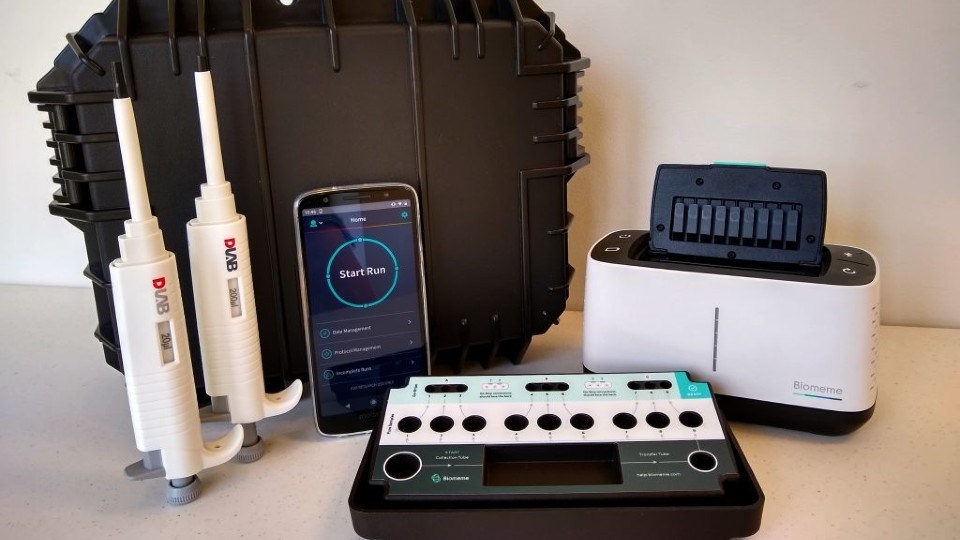Industry and business has responded well to a new Canadian COVID-19 test device that was first put into action at a Northern Ontario gold mine just three months ago.
The portable device, about the size of a bread toaster,is the SARS-CoV-2 Real-Time RT-PCR, distributed by Precision Biomonitoring of Guelph. It was approved by Health Canada on June 30. Two weeks later on July 13, the first test kit was used at the New Gold Inc. mine near Rainy River.
Since then, the test kit has become a success story, said to Dr. Mario Thomas, CEO of Precision. Without revealing the names of clients, Thomas said a uranium mining company and an iron ore company also bought test kits. Some test kits have also been distributed to remote First Nations in Northern Ontario.
At the gold mining company, the testing is done with a registered nurse and a lab technician. New Gold said two nurses and two technicians were hired to allow continuous testing when there is a demand. The kit can use either nasal swabs or saliva swabs called Go-Strips.
The attraction said Thomas is that the kit allows health care workers in remote places to do a COVID test on mine employees with results available in just over an hour. This means employees do not have to wait a couple of days in isolation for test results that are sent out to a hospital or health lab. It also means other mine workers are able to continue working if they have no COVID-19 symptoms.
"It has really been a successful effort to help mining companies keep their workplaces safe," said Thomas. He added that other groups picked up on the news of the test kit and bought into the program.
"Many other groups. We have a film studio in British Columbia, we have fisheries in Nova Scotia, a construction company in Manitoba and a pulp and paper mill in Quebec. And now even some businesses in downtown Toronto on Bay Street," said Thomas.
"It really shows it doesn't matter the workplace; it is the desire of the employer to provide a safer workplace. This can be deployed anywhere basically," he added.
When asked about the unit pricing for the test kit, Thomas declined to be specific.
"We don't have a unit price per se. We sell a package deal to each company. The package deal will vary depending on some options that are available. So there is not a one-size-fits-all price. It really is customized."
He added that compared to the day-to-day cost of running a mine, the test kit was a bargain.
"It is very good value. A few dollars for testing employees on a regular basis is probably not materially significant," said Thomas.
He added that he supports the idea of having more test kits sent into remote and rural areas of Northern Ontario. As part of the agreement to send test kits to the Rainy River mine, New Gold agreed to provide portable testing to members of several Treaty No. 3 First Nations that have work agreements with the mine as well as for Indigenous employees at the mine.
In the meantime, Thomas said Precision is not sitting back to enjoy the spotlight. He said work is well underway on another innovative procedure.
Thomas said Precision is working on the development of a completely new testing device that uses a sample of a person's saliva to determine whether there is COVID-19.
"It is based on the detection of a protein on the surface of the virus and not the genetic material inside the virus," he explained.
He added the device is about the size of a credit card and features a micro-sensor that will determine a change in the protein on the surface of the virus particle. He said the device also has a Bluetooth application built into it.
"So it connects with your smartphone so you can actually read the results. We are starting the clinical evaluation of this very soon."
